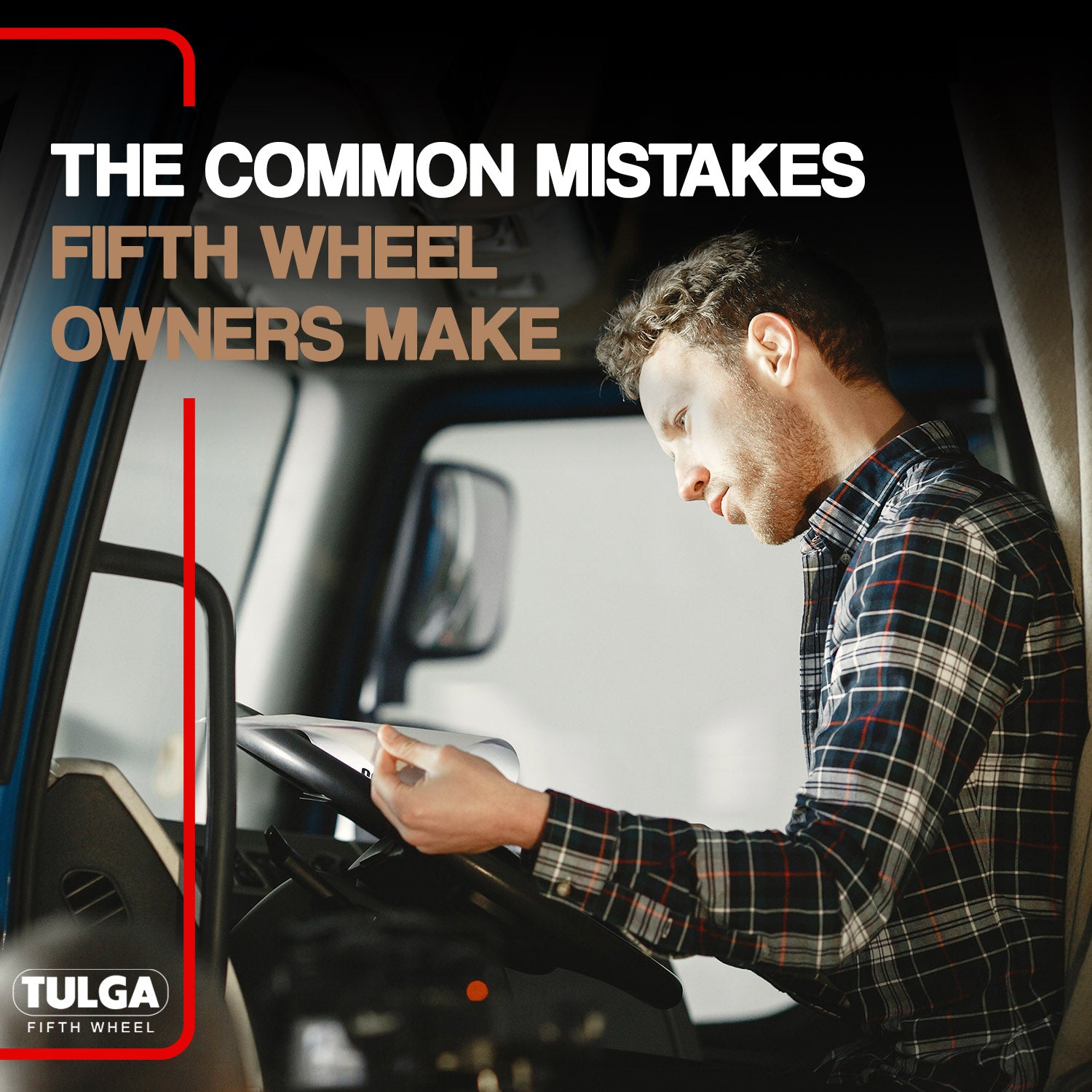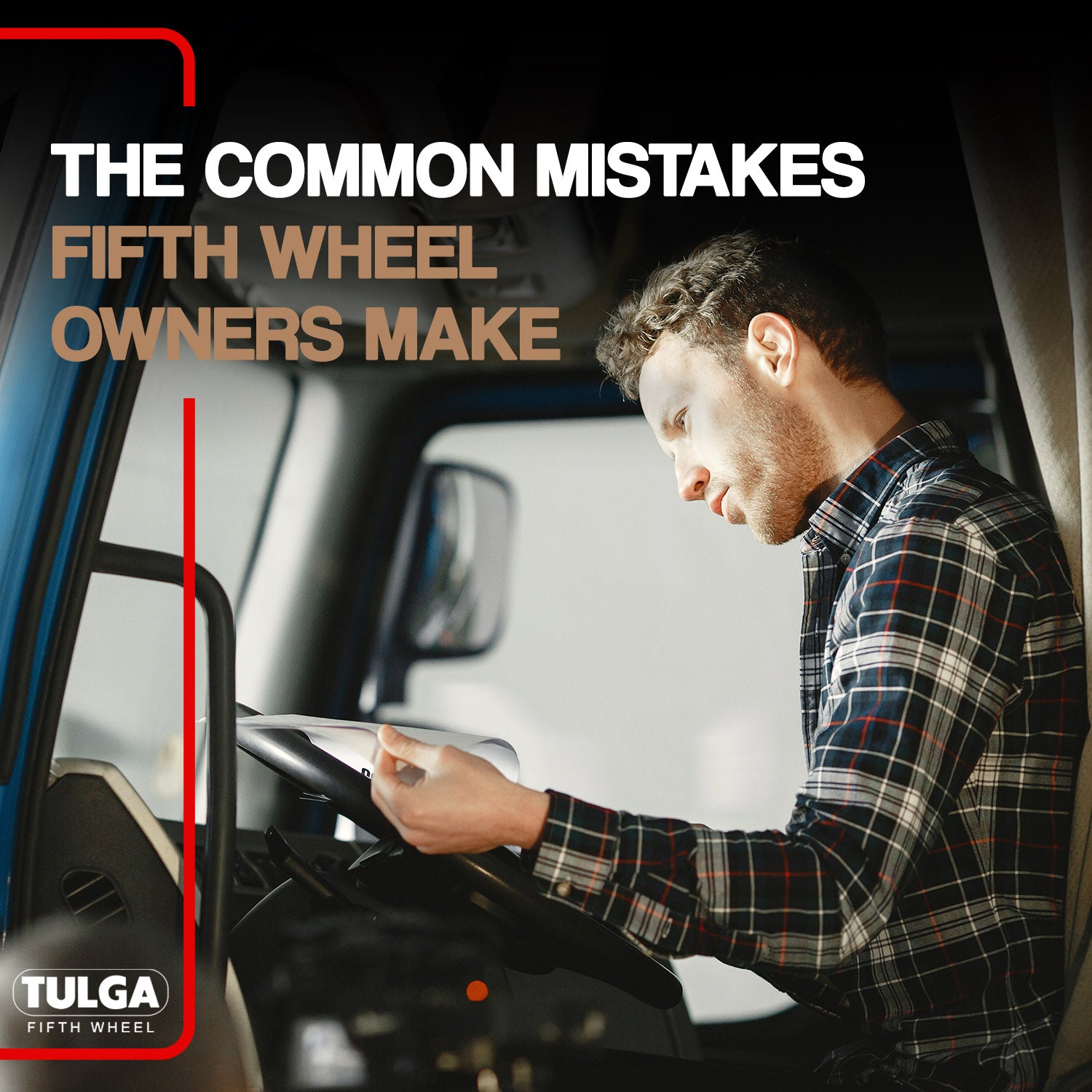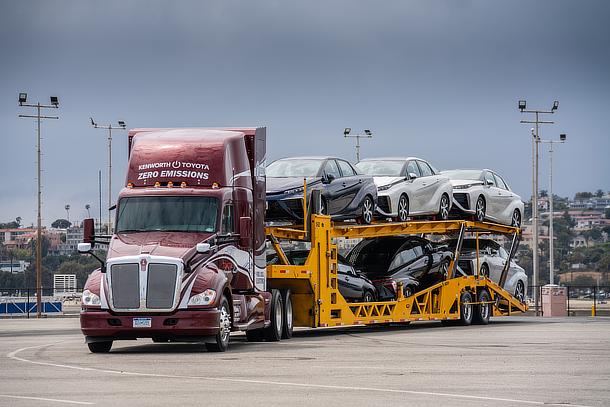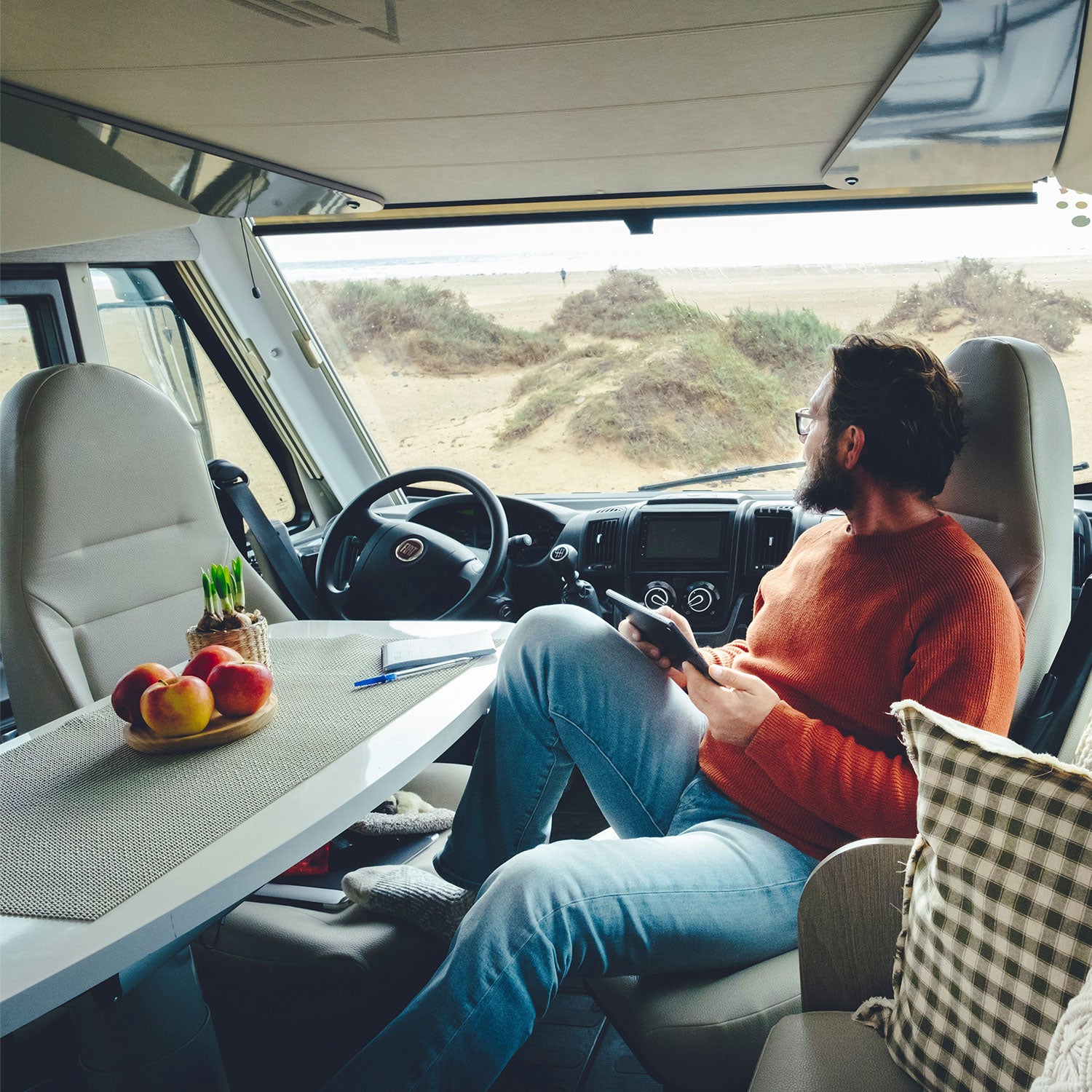Call (888) 611 2366
Support@tulgafifthwheel.com
Call (888) 611 2366
Support@tulgafifthwheel.com


A fifth wheel signifies adventure and independence. Nevertheless, even seasoned travellers can make certain mistakes when taking advantage of this independence. We'll talk about the typical mistakes fifth wheel owners make in this blog post, so you can steer clear of them and enjoy safer, smoother travels.
What are The Common Mistakes Fifth Wheel Owners Make
Owning a fifth wheel is a unique way to enjoy freedom on the roads. However, this adventure-filled lifestyle can sometimes come with unexpected challenges and common mistakes. Fifth-wheel owners, especially beginners, often fall into the same pitfalls. These include improper vehicle maintenance, incorrect load distribution, insufficient planning and preparation, and neglecting safety measures. Such mistakes can lead to unexpected problems on the road and turn your vacation into a nightmare. In this article, we will thoroughly examine the common mistakes that fifth wheel owners might encounter, sharing crucial points you need to be aware of, from tyre pressure and weight distribution to maintenance routines and trip planning. Be ready to discover this critical information to avoid potential problems related to your fifth wheel!
Neglecting Regular Maintenance
Neglecting regular maintenance is one of the most common and serious mistakes made by fifth-wheel owners. Failing to service your caravan regularly can cause minor issues to evolve into major malfunctions over time, leading to costly repairs and unexpected inconveniences that spoil your travels.
For instance, not regularly checking tyre pressures can lead to tyre blowouts and unsafe conditions on the road. Similarly, failing to regularly check the brake systems, lighting equipment, and plumbing not only creates safety risks but also shortens the lifespan of your caravan. Regular maintenance also allows your vehicle to operate more efficiently, saving you fuel. Therefore, fifth wheel owners should meticulously follow their caravan's maintenance schedule and ensure all necessary checks and adjustments are made promptly for long-term comfort and safety.
Overlooking Weight Limits

Ignoring the weight limits set for fifth wheel caravans and tow vehicles leads to serious consequences in terms of both safety and legal liabilities. The maximum load each vehicle can carry is calculated based on the vehicle's structure, brake system, and overall performance. Exceeding weight limits can negatively affect the vehicle's manageability, leading to accidents on the road. Heavy loads can extend braking distances, create excessive pressure on tyres, and even damage the vehicle's chassis.
Moreover, there are legal penalties for exceeding weight limits. During road inspections, vehicles found to exceed the weight limit can subject drivers to significant fines. This situation can lead to financial loss and possible loss of license.
When loading your caravan, always consider the maximum weight capacity of your vehicle and towing system. Distributing your items evenly and optimizing weight distribution enhances road safety and extends the life of your vehicle. Adhering to weight limits is not only a legal requirement but also fundamental for the safety of you and other road users.
Improper Hitching and Unhitching
When fifth wheel caravans are not correctly hitched and unhitched, there are serious safety risks. Precisely attaching and disconnecting the caravan from the tow truck are the two steps in this process that require close attention to detail. An improperly attached caravan might separate from the vehicle, travel erratically, or possibly result in traffic accidents. Similarly, incorrect unhitching could cause unexpected damage or property destruction.
Correct hitching requires that the hitch and the components that link it are suitable for the caravan and the tow vehicle and that they are connected firmly. Verifying that the electrical and braking systems are connected and operating correctly is also very important.
It is imperative to guarantee that the vehicle and the caravan are safely supported and stabilized during the unhitching procedure. Because there is a chance that the caravan will move abruptly, this operation demands particular caution when done on sloping terrain. Additionally, it's critical to inspect the hitch and its connecting parts for damage and carry out any necessary maintenance.
In addition to causing material damage and lost time, improper hitching and unhitching pose a major safety risk. Fifth wheel caravan owners must thus carefully undertake these operations before every journey by learning the proper hitching and unhitching skills.
Failure to Perform Maintenance

One of the worst errors fifth wheel caravan owners may make is to neglect routine maintenance. This omission may eventually result in serious mechanical problems, dangers to public safety, and unforeseen expenses. Every part of the caravan, including the tyres and electrical wiring, needs to be inspected and maintained regularly. This includes the engine and brake system. The performance of the car can be badly impacted by neglect, which can result in worse fuel economy and a shorter lifespan. In addition, faults on the road might put passengers' safety in grave danger in addition to causing material damage. Maintaining the car's resale value also requires regular maintenance. Therefore, fifth wheel owners should not neglect their caravan's maintenance schedule and should perform all necessary maintenance tasks promptly to ensure a safe, enjoyable, and smooth travel experience.
Forgetting to Stabilize
One often overlooked yet vitally important step in caravan usage is properly stabilizing the vehicle. Fifth wheel caravans, especially during extended stops, should be secured using stabilization equipment. This process limits the vehicle's movement, providing a safer and more comfortable living space for its occupants. Forgetting to stabilize can lead to the caravan swaying even in light winds, causing interior items to shift or get damaged. In more serious situations, the imbalance of the caravan can lead to structural damage or even the vehicle tipping over. Stabilization is particularly crucial on sloped terrains or in areas with soft ground conditions. It not only enhances the safety of the caravan but also significantly improves the comfort of those living inside. Therefore, using the stabilization jack correctly and securing the vehicle properly when parking your caravan is essential for a safe and enjoyable caravanning experience.
Ignoring Brake System Checks
Frequent maintenance of fifth wheel caravan brake systems is one of the most crucial requirements for safe travel. Brake system neglect can have a direct impact on how well the brakes on the tow vehicle and the caravan perform, which can be extremely dangerous when driving. Delaying brake maintenance can lead to diminished brake fluid efficacy, excessive pad wear, and braking disc failure. These issues may increase stopping distance and, in an emergency, lead to total braking failure. A trustworthy braking system is crucial, especially when hauling heavy loads or traversing unpaved areas. Caravan owners and occupants are put at risk, as well as other drivers, when brake system inspections are neglected. For a smooth and safe journey, it is therefore essential to have the brake systems inspected by a professional service before leaving on a trip and at regular intervals, as well as to carry out the required maintenance.
Skipping Pre-Trip Inspections

Fifth wheel caravan owners frequently make the mistake of skipping pre-trip checks, which might result in unforeseen issues during the trip. This important stage evaluates the vehicle’s general state, making it possible to identify and fix any possible problems before the trip ever starts. Tire pressure, brake systems, lights, hitch connections, and other vital systems are also inspected during the inspection process. These basic pre-trip inspections guarantee the vehicle runs effectively and safely on the road. Ignoring these inspections puts the caravan owners, their friends, and other drivers in danger of safety hazards due to malfunctions, accidents, and needless delays. Pre-trip inspections should be done regularly to improve safety, prepare for the unexpected, and enjoy the ride.
Not Knowing Local Regulations
One significant issue fifth wheel caravan users might encounter is being unaware of the local regulations of the places they travel to. While caravan travel offers great freedom, this freedom is subject to various local regulations such as traffic laws, parking arrangements, and weight and size limits. These regulations can vary significantly from region to region, and violations can lead to fines, towing of the caravan, or other legal issues.
For instance, some areas may restrict the entry of caravans of certain sizes, or some roads may not be suitable for heavy vehicles. Additionally, special permits may be required for overnight parking, or there may be strict rules about making fires in certain areas. Not knowing the local regulations can quickly complicate a planned trip.
We recommend finding and calling the campground in advance. On the other hand, access to the camp may be granted, but you could be expelled for breaking the rules. Since the campground operates like a community, it's important to respect its rules.
Before and during the trip, gaining knowledge about the local regulations of the area you are in is extremely important. This can be achieved through internet research, communicating with local authorities, or getting advice from caravan and camping communities. Acting by local regulations not only prevents legal issues but also ensures a safe and smooth trip.
Ignoring Battery Maintenance
The battery of a caravan is essential for many important functions, from lighting to cooling systems, charging electronic devices, and basic vehicle operations. Batteries that are not regularly maintained can suffer from performance loss over time and can completely fail unexpectedly. This not only ruins the enjoyment of the trip but can also lead to the loss of critical energy sources needed for emergencies.
Battery maintenance, including keeping terminals clean, checking battery fluid levels, and regularly testing the battery, is crucial. Especially for caravans that are not used for extended periods, there is a high risk of battery discharge. Therefore, keeping the battery fully charged and performing maintenance charging as needed is important.
Neglecting battery maintenance can lead to unexpected electrical problems on the road or at the campsite. This situation is not only inconvenient but can also faily safety systems and essential life support systems. Regular battery maintenance is vital to ensure the caravan operates reliably and to minimize potential electrical issues during travel.
Not Securing Items Inside

During caravan travels, not properly securing items inside can lead to safety risks and material damage. Sharp maneuvers, sudden stops, or rough roads can cause unsecured items to move, leading to damage or injuries. Therefore, placing and securely fastening all items before travelling is critically important. Tools such as cabinet locking mechanisms, non-slip mats, and wall hooks offer effective solutions for securing items. This simple precaution enhances safety within the caravan and ensures the protection of your belongings.
Lack of Emergency Preparedness
During caravan travels, a lack of emergency preparedness can leave you vulnerable to unexpected events. A first aid kit, basic tools, sufficient water and food, and emergency plans form the foundation of these preparations. Being unprepared can turn minor issues into major crises. Careful preparation before travel ensures safety and peace of mind in potential emergencies. Checking and updating your emergency supplies before each trip enhances your ability to cope with difficulties. To make your job easier, you can also prepare a checklist.
Common mistakes made by fifth wheel owners often stem from a lack of sufficient knowledge and preparation. However, these mistakes can be easily avoided with the right information and careful preliminary preparations. To make your fifth wheel travel safer, more enjoyable, and smoother, do not forget to take advantage of reliable sources like Tulga Fifth Wheel. With Tulga Fifth Wheel, you can elevate your fifth wheel adventure to the next level by providing everything you need throughout your journey. For more information and support, please visit our website